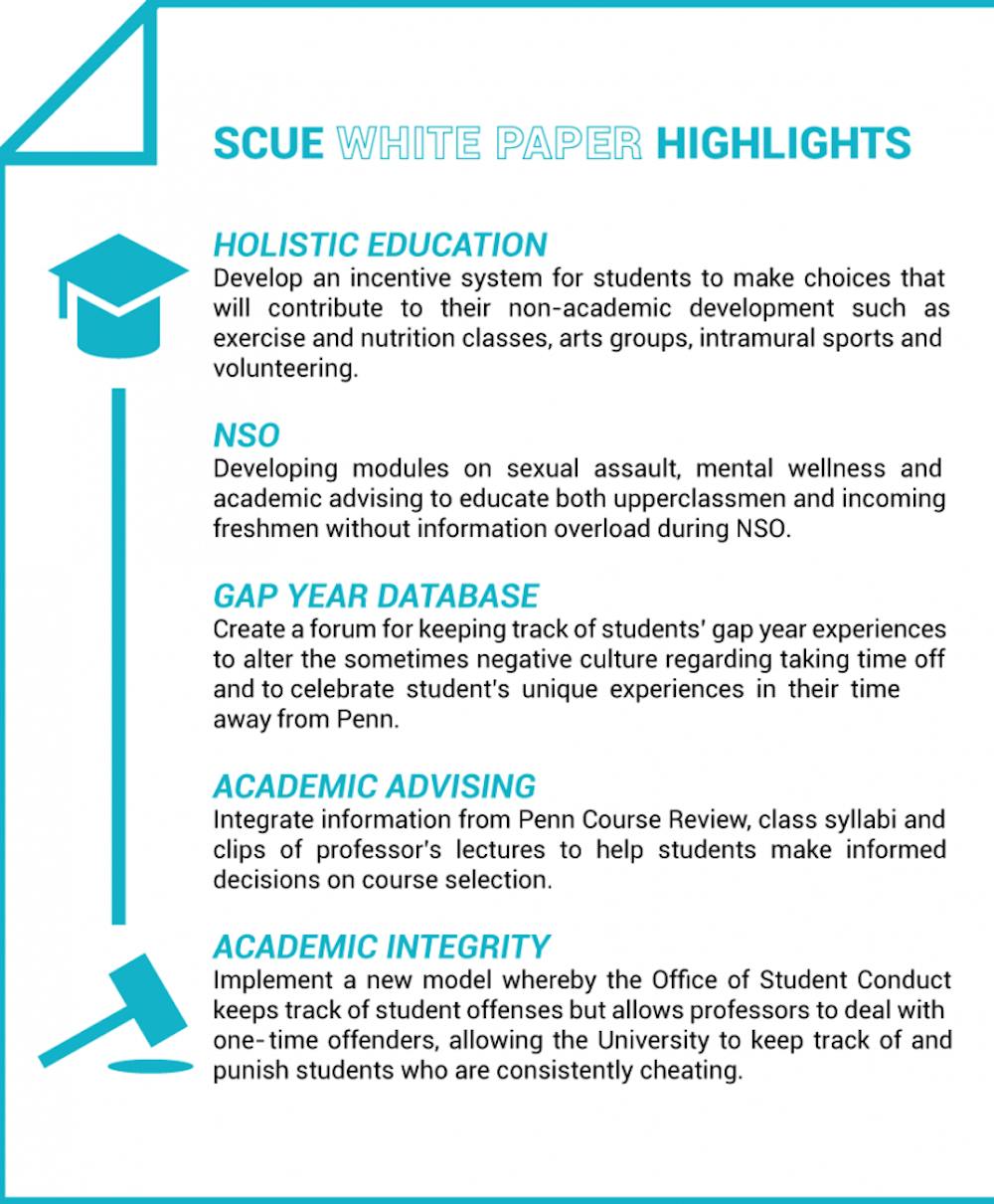
Mental health, sexual assault and drug and alcohol use are just a few of the topics on which the Student Committee on Undergraduate Education wants the administration to hear their voices on.
This week, SCUE released its 2015 White Paper — a document that is published every five years with student recommendations to the administration.
One of the big questions of this year’s White Paper is on how to improve quality of life once students get on campus. They describe a campus culture in which students’ busy academic and extracurricular schedules pressure many students to forgo healthy habits.
SCUE’s new holistic education initiative originally stemmed from the fact that Penn does not offer credit in physical education unlike many other peer institutions. The proposed system would include an “alternative credit system” that would incentivize participation in activities that reinforce non-academic personal development.
Under the proposal, students could get non-academic credit for activities such as exercise classes, healthy eating classes, community service and intramural sports. Credit would potentially go towards rewards from scholarships, stipends and priority housing selection to tickets for events on campus.
“We wanted to address how to teach students to be more well-rounded and manage their challenging lives in a way that reduces stress and educates them about different cultures and civic engagement opportunities,” SCUE Chair and College senior Lucas Siegmund said, adding that they wanted students “to use their experience here not just to learn in the classroom but to develop as a person.”
Additionally, SCUE proposed greater centralization of community service opportunities on campus, which are currently divided amongst the Netter Center, Fox Leadership House and the Civic House, as well as expanding student participation in Academically Based Community Service courses.
One way the university will address these issues even before Penn students come to campus is through online modules similar to Penn Alcohol Module, which incoming freshmen have had to complete in past years, and expand them to incorporate other topics. Modules in the works include sexual assault, academic integrity policies and mental wellness.
The goal is that students, incoming freshmen as well as upperclassmen, will be engaged in learning about these issues throughout their undergraduate experience and will have time to reflect on them instead of facing the type of information overload that tends to happen during New Student Orientation.
“These kinds of general lessons about life at Penn are helpful throughout your college experience,” Siegmund said.
Another initiative aimed at addressing quality of life is by calling attention to the gap year as a valuable option for students. SCUE proposed organizing a university database of students’ gap year experiences, as well as compiling a panel of students who have taken gap years to advise interested students.
Siegmund said SCUE defines a gap year “not just to mean a year between high school and undergraduate experience, but to mean any period in your four years at Penn where you leave — the goal of which would be to achieve some personal objective.”
Students at Penn often take gap years for work experience, volunteer opportunities, creating businesses or taking time to reflect on their goals before getting their degrees. The goal of the database and panel would be to take away the negative stigma against taking time off from Penn and celebrate students’ unique experiences, letting them know that it is okay to take time to figure things out.
The Daily Pennsylvanian is an independent, student-run newspaper. Please consider making a donation to support the coverage that shapes the University. Your generosity ensures a future of strong journalism at Penn.
DonatePlease note All comments are eligible for publication in The Daily Pennsylvanian.




